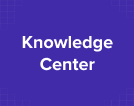Index
Get the latest news right in your inbox
The KYC process has evolved over time as user needs and demands have changed. Likewise, changes in regulations that standardize its use have caused many Know Your Customer system providers to mold the process to find the perfect flow of steps and usability.
Today's KYC is totally different from the initial process of taking a simple photograph of identity documents and producing a very simple AML card with limited information. Now, the best systems are able to understand user behavior and redirect them to different steps to achieve almost absolute conversion rates.
We will look at how KYC works in this new generation of digital onboarding systems and the benefits it has proven to deliver. On the other hand, we will also analyze the regulatory framework and how its changes have affected other industries beyond banking, FinTech or insurance.
What is KYC?

KYC is a process by which companies identify their customers with very specific technical and security standards. Know Your Customer confirms that the customer is who he/she says he/she is in order to establish a commercial or contractual relationship with guarantees and officialdom.
We have already analyzed KYC in depth, its operation, types and each of the phases and steps of its flow of operations. Now, let's see what is currently understood by Know Your Customer: something much closer to the concept of registration and onboarding than to the legal requirements to open an online bank account.
It is no longer only financial institutions that are setting up these processes for the sole purpose of complying with the law. In Spain, for example, the 10/2020 standard that adapted the regulation of this European country to the AML 5 standard on money laundering. Now, the KYC process can benefit from the new features of AML6 to be more flexible.
In 2024, AML6 is emerging as one of the standards to be updated. While we cannot yet speak of AML7, some initiatives are already being outlined by regulators to extend certain aspects of AML 6. KYC service providers will need to be on their toes in 2024 to stay ahead of potential regulatory changes.
This practice has spread across all industries in order to operate remotely and fight online fraud. Whether it is because users demand to be able to operate from anywhere and at any time via the Internet or because of legal imperatives, this method of identity verification brings together the best practices that companies can perform to incorporate new users as customers in their databases.
KYC today: 2024 will be decisive
What will KYC systems be counting on in 2024? More and better technology. Know Your Customer today must be focused on conversion.
During all these years of implementing Know Your Customer models we have seen how many companies deal with problems in terms of funding the process. This is due not only to bad practices in terms of user experience and interfaces (UX/UI) but also because the technology on which the process relies is not sufficiently solvent, agile and flexible.
2024 will be the year in which we will see the major development of the already advanced eIDAS 2 (2nd electronic IDentification, Authentication and trust Services regulation) and PSD3 (Third Payment Services Directive). In both, the KYC standard is included for certain cases. While PSD3 focuses on electronic transactions and payments, facilitating an open banking model (which has already been joined by eKYC systems such as Tecalis for bank scraping in the face of autoamted risk scores in onboarding), eIDAS2 will propose a homogeneous digital identity based on the new Wallet formats.
Thus, Know Your Customer service providers will have to adapt their solutions to take advantage of the possibilities of interconnection in the financial system as well as to accept the possible new official identities provided by governments for onboarding in any remote customer registration process.
The challenge of KYC documents
KYC anti-fraud measures must be imperceptible to the user and performed in a back-end process instantaneously. These AML controls to prevent money laundering and terrorist financing are at the heart of the process for the company but should not be for the user. The best technologies do not keep the user waiting and have powerful OCR systems that extract all data with no room for error.
This, which might seem quite obvious, is not a constant in the banking sector today, where you can see complaints from certain customers about problems with the reading of data or friction during the process. Despite this, there are RegTech partners that do have strong and robust technologies capable of performing to perfection.
One of today's most prominent innovations is the automatic recognition of KYC documents. In other words, technologies capable of identifying everything from national identity documents, driving licenses or passports to credit, loyalty or health cards, invoices, contracts or commercial registry documents. This identification must be done without the user having to previously select the document to be identified: the system must be able to identify it automatically and then apply all the relevant eIDAS and AML checks and controls to verify the integrity, veracity and legitimacy of the document presented, validating its information and comparing it with public and private databases if necessary.
Beyond OCR, dozens of Know Your Customer checks must be inserted on the identity document and on the video for facial identity verification. This will give us a much more complete KYC record and more exhaustive electronic proof so that the process has more legal backing.
Flexibility and automation
On the other hand, there is a very important aspect that is already being implemented and that we will see more and more: intelligent KYC flows. Depending on the characteristics of the device where the user is performing the process and taking into account retry policies defined according to their actions, operations can intelligently offer different alternatives so that we always get the conversion.
We are no longer talking about preconfigurable workflows, but rather about the system having dozens of possible routes to offer the user in advance, depending on how he/she interacts with the process.
In terms of the flexibility of Know Your Customer systems, we will see how the hyper-customization of options will begin to reach onboarding systems. Currently, many processes are too exhaustive when it is not necessary for fear of penalties or risks, while others are too lax to avoid friction and maximize conversion.
This hyper-segmentation perspective will allow KYC to adapt to each specific use case in order to be as optimized as possible by finding the perfect point where neither security nor expertise or agility are compromised.
Automation must be present in the event of abandonment in the middle of the process - no longer due to friction in the process but for external reasons such as the user being interrupted by a third party or having to leave. In these cases, it is necessary to have reminder systems so that the user can continue where he left off and in a cross-device way (on any other device, even different from where he started).
Know Your Customer banking: far beyond

PSD2 has changed the way banking and FinTech customers interact with their management platforms. Multi-factor authentication under SCA standards must now be rigorously enforced.
Something that many are missing is the use of the facial pattern obtained in the initial KYC to generate biometric credentials for login or access. Knowing that facial recognition is the preferred method for authentication by users today, we will see how these systems will begin to be present at the start of the apps or websites of the main players in the sector. Similarly, voice biometrics will take off in the near future as a complement to the KYC process. This technology is especially useful in use cases through telephone contact.
Contracting or negotiation processes with integrated KYC
Just as KYC has jumped from the financial sector to other industries, e-signatures have been adopted by BFSIs (Banking, Financial Services and Insurance) in the onboarding process. These contract signing platforms allow closing clients in seconds and guaranteeing the process.
However, most insurers, banks or FinTechs have different providers for their identity verification and document signing or notification needs. The key in the coming year will be to unify the onboarding process so that KYC and the signing of contracts and documents are done under the same flow and on the same platform.
Holistic solutions like Tecalis implement Know Your Customer together with e-signatures on the same platform, linking the two processes. This manages not only to unify the experience, reduce costs and time, obtain greater evidence or boost contracting rates, but also to achieve superior legal support.
Digital onboarding for all
The advantages and benefits of KYC have made the banking and financial sector stand out for its good results. As a result, leaders in other industries far removed from the norms and standards of these areas of activity have become interested in a process that provides guarantees and security.
A very illustrative example of how far we will see Know Your Customer go in 2024 is the tourism industry. The same onboarding tools used in the banking sector are helping hotels to offer online self-check-in services to avoid customer waits at the front desk and reduce costs.
While some trusted service providers display their branding during the screening process, this is a mistake. Customers tend to be suspicious when they see that they are contracting with an entity that includes third-party logos they are unfamiliar with. A trend that is becoming increasingly evident is to opt for customizable solutions that adapt their interface to the brand in which the user is operating.
Renting and carsharing are other areas that are gaining the most advantages and benefits from KYC. These platforms have been able to scale their business and grow in countries where they did not yet have a presence by simply investing in new fleets there without the need to create new systems or adapt to the regulatory frameworks of the different markets.
Finally, we see how one of the searches on the internet is about crypto exchanges without KYC declining. This is because regulators in most western countries are forcing trading platforms to comply with standards that set the most demanding onboarding processes.
























